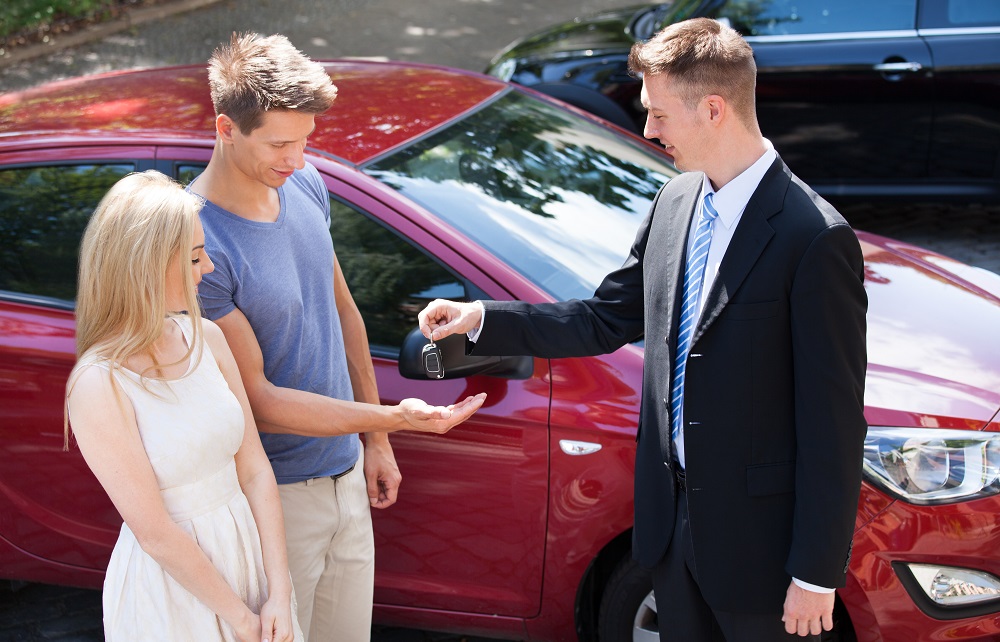There are a multitude of decisions we are forced to make in life. Paper or plastic? IPhone or Android? Fries with that? While the decision to get yourself into a new car can be a hassle, it doesn’t have to be if you show up to the dealership well prepared for what your best options are. There are a lot of commercials out there offering fantastic rates for buyers and lessees, but what is the right decision when it comes to whether to buy or lease your next car?
Let’s start with the basics. What is a lease and what is a purchase? When you purchase a new vehicle from a dealership, you finance the vehicle through a bank for a certain period of time, and when you finish your cycle of payments, the car is yours. A lease is essentially borrowing a car from a dealership, while making payments to the finance company. At the end of the lease term, usually 36-39 months, the car must either be returned to the dealership towards another brand new vehicle or the lessee has the option to buy the car for the price remaining after the lease.
What are the differences? Typically a lease payment is lower than that a car purchase, and most people like the idea of getting a new car every three years. However, due to mileage limitations, sometimes a lease can get a little bit pricey. Dealerships often charge a per mile premium for exceeding the allowed mileage in your lease terms. A great deal of people also feel that leasing a car is equivalent to paying rent, that you’re eventually getting nothing out of it.
When it comes to a purchasing a new car, there are also pitfalls as well. Our attention spans are not all that long anymore and the idea of owning a car for five to seven years bores a lot of people. Technology is also a concern for most car buyers, as two to three years is the limit for most automotive technology options and after that it is obsolete. Cars made in 2007 didn’t even offer the auxiliary input that is offered in almost every car on the market now, not to mention the advancements made in Bluetooth and infotainment systems.
Another thing that must be considered in purchasing a new car is resale value. It is widely known that a car begins to depreciate as soon as it is driven off the lot, so you must think about what the car you’re buying will be worth in the long run. While a leased vehicle is meant to be traded in every three years, a typical car loan lasts five years.
Given that there is little to no monitoring of the mileage on a purchased car, we tend to drive more often. If the vehicle is your main source of transportation and you enjoy traveling and road trips, chances are that you are going to rack up some miles, thus lowering the resale value of that vehicle.
However, the mileage limitations are the number one reason people choose an outright purchase over leasing. When the mileage is over the limit on a lease, it can cost a tremendous amount of money. Most companies will allow drivers to roll the excess mileage into the new lease payment, thus raising the monthly price. Given that price is a major factor when leasing a car, an excessive addition can be a deal-breaker for most people so they are forced to think more about where they are going and how much they’re driving their cars.
When considering the two options, drivers must decide which is more important to them; driving a new car every three years while having to limit their driving freedom or eventually owning a car that may not be worth as much when they’re finished with it. If you’re a driver that gets easily bored with your vehicle, leasing may be a better option for you.
However, if you’re a road trip junkie or your work takes you on large commutes, a purchase will be the right decision. The choice is not a simple decision, and many times the cost will factor into the decision. Consider the idea of vehicle insurance as well, because you never technically own a leased car, you will be paying maximum coverage as long as you’re deciding to lease. On the contrary, once you own your purchased vehicle, you are able to drop high insurance premiums and pay at a discounted rate.
Whether you’re a die-hard lessee or purchase loyal, a new car is something to be excited about. Just make sure you cover all of your bases, and don’t get roped into a decision that isn’t going to work for your lifestyle. Preparation and research are imperative facets of the car search process, and they can often protect you from bad decisions. Don’t regret your new car, embrace it.
This post may contain affiliate links. Meaning a commission is given should you decide to make a purchase through these links, at no cost to you. All products shown are researched and tested to give an accurate review for you.


